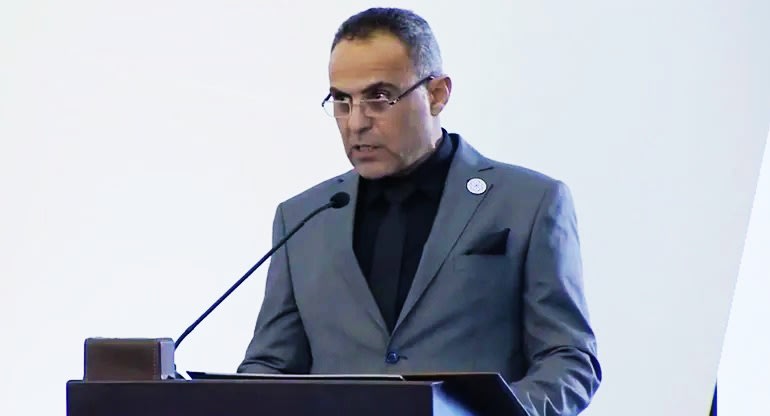Amjad Badr has been appointed as the Minister of Agriculture in the new Syrian government, in a strategic move aimed at enhancing food security and implementing necessary reforms in the agricultural sector, which faces significant challenges amidst ongoing crises.
Who is Amjad Badr? What are the milestones in his life that have made him suitable for this position?
Outstanding Academic Background:
Amjad Badr was born in 1969 in the province of Al-Suwayda, and pursued an outstanding academic path, graduating from the Faculty of Agricultural Engineering - Department of Agricultural Economics at Damascus University in 1993.
His ambition did not stop there, as he continued his postgraduate studies to obtain master's and doctoral degrees in agricultural economics from Aleppo University in collaboration with the International Center for Agricultural Research in the Dry Areas (ICARDA), a prestigious center focusing on agricultural solutions in dry areas.
Exceptional Professional Experiences:
Amjad Badr held various research positions at the General Commission for Scientific Agricultural Research, working at the Al-Suwayda Research Center, and contributing to the implementation of numerous economic and social studies addressing the reality of the agricultural sector in Syria and the impact of climate change on agricultural production.
He also played a prominent role in international and regional projects aimed at developing this vital sector, earning him an international reputation in this field.
Notable Scientific Contributions:
Amjad Badr's role extended beyond local scientific research, as he published numerous peer-reviewed studies focusing on wheat productivity, the impact of modern irrigation techniques on improving agricultural production and increasing farm income.
He presented research papers at international conferences discussing the key challenges facing water resources and how to manage these resources to meet the needs of sustainable agriculture.
Minister Amjad Badr: New Challenges and Ambitions
As the Minister of Agriculture, Amjad Badr faces immense challenges that require comprehensive reforms. He aspires to enhance agricultural production through modern techniques and innovations that promote the sustainability of natural resources. The challenges he faces include climate change impacts, economic pressures, and the need to enhance food security in Syria.
Amjad Badr's appointment to this position reflects the Syrian government's desire to fundamentally reform the agricultural sector, drawing attention to this official who possesses a strong academic background and rich field experience.
The agricultural sector in Syria awaits much from him, and Amjad Badr promises to be part of innovative solutions that contribute to improving its situation and enhancing its ability to face future challenges.

